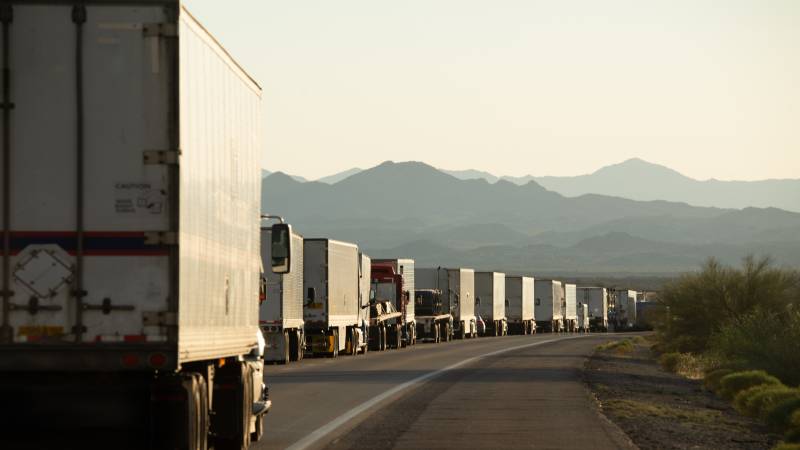Trucks are by far the largest source of air pollution from vehicles in California, generating about 80% of carcinogenic diesel soot and 70% of smog-causing pollution, according to the Air Resources Board. And their impacts are unequal: communities of color and low-income communities situated near ports, distribution centers and warehouses — particularly in the Inland Empire — are more likely to bear the health costs. As part of Forum’s “In Transit” series, we look at the scope of the problem and new efforts by the state to decarbonize its trucking industry.
In Transit: California Looks to Green Its Trucking Industry

(shutterjack via Getty Images)
Guests:
Ethan Elkind, director of the Climate Program at the Center for Law, Energy and the Environment, UC Berkeley School of Law - host of the podcast, Climate Break<br />
Rachel Uranga, reporter covering transportation and mobility, Los Angeles Times<br />
Amparo Muñoz, former policy director, Center for Community Action and Environmental Justice (CCAEJ) - and co-author of the letter urging Gov. Newsom to "Declare a Public Health State of Emergency in the Inland Empire"
Sponsored